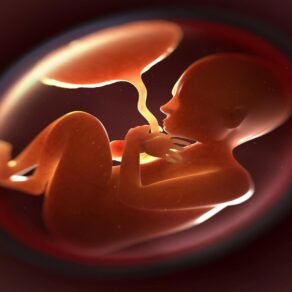In the realm of pregnancy tests, accuracy is paramount. Whether it’s the exhilarating anticipation of a positive result or the relief of a negative one, the reliability of these tests is crucial. But amidst the varied advice and information swirling around, one question often arises: Are pregnancy tests accurate at night?
Understanding Pregnancy Tests
Before delving into the nocturnal accuracy of pregnancy tests, it’s essential to grasp how these tests work. Most over-the-counter pregnancy tests detect the presence of human chorionic gonadotropin (hCG) in urine. This hormone is produced by the placenta shortly after implantation occurs, typically about six days after fertilization. The concentration of hCG steadily increases in early pregnancy, peaking around the eighth to eleventh week before gradually declining.
Factors Affecting Accuracy
Several factors can influence the accuracy of a pregnancy test, regardless of the time of day. These include the sensitivity of the test, the concentration of hCG in the urine, the timing of testing concerning ovulation and implantation, and the presence of any interfering substances in the urine sample.
Are pregnancy tests accurate at night
Now, let’s address the burning question: Are pregnancy tests accurate at night? The short answer is yes. Pregnancy tests can be accurate regardless of the time of day you take them. However, there are some considerations to keep in mind.
1. Urine Concentration: During the night, your urine may be more concentrated due to not drinking fluids for several hours. While this may theoretically affect the accuracy of some tests, modern pregnancy tests are designed to provide reliable results despite variations in urine concentration.
Timing of Testing
The timing of when you take a pregnancy test can significantly impact its accuracy. While some women may be eager to test as soon as possible, it’s generally recommended to wait until after you’ve missed your period for the most accurate results. Testing too early may yield a false negative, as hCG levels may not yet be detectable.
2. Sleep and Stress Levels: Factors such as sleep quality and stress levels can influence hormone levels in the body, potentially impacting the accuracy of pregnancy tests. However, these effects are likely minimal and shouldn’t significantly affect test results.
3. Follow Instructions: Regardless of when you take the test, it’s crucial to follow the instructions provided with the test kit carefully. This includes using the first urine of the day for optimal accuracy, though it’s not a strict requirement for most tests.
4. Digital Tests: Digital pregnancy tests, which display results as “pregnant” or “not pregnant,” may be more reliable for some individuals, as they eliminate the subjectivity associated with interpreting faint lines.
Conclusion
In conclusion, pregnancy tests are generally accurate at night, provided you follow the instructions and use a reliable test. While the timing of testing may influence results slightly, modern tests are designed to account for variations in urine concentration and other factors. If you suspect you may be pregnant, it’s best to test after a missed period for the most reliable results. Remember, regardless of the outcome, it’s essential to seek appropriate medical care and support.




